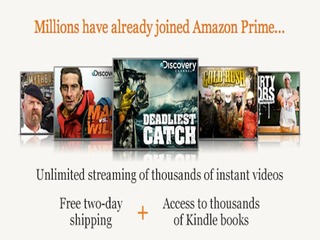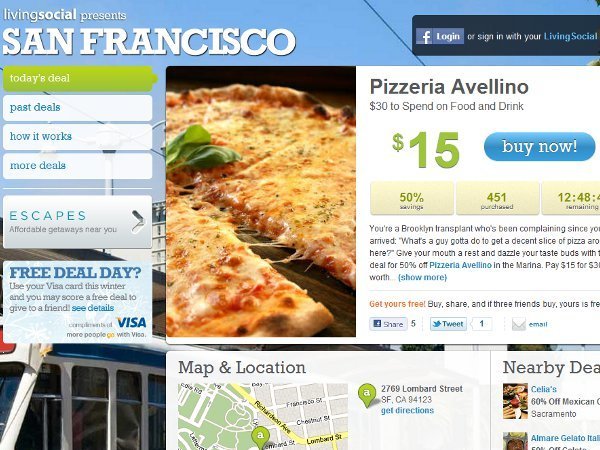
The movie streaming business is getting more interesting by the minute. Amazon beefed-up its video catalog by 3,000 on Wednesday when it announced a licensing deal with Discovery Communications.
This is the biggest single addition to the Amazon Prime list of streaming videos including programs from Discovery Channel, TLC, Animal Planet, Investigation Discovery and the Science and Military Channel. This means that Amazon Prime customers will now be able to stream TV episodes and specials from those channels, as well as from the company’s 25-year programming library.
Popular programs included in this agreement are: Discovery Channel’s “Dirty Jobs,” TLC’s “Say Yes To The Dress” and Animal Planet’s “Whale Wars,” “Cake Boss,” “Mythbusters” and the deeply beloved program series turned near-calendar-holiday “Shark Week.”
Amazon Prime customers pay the $79 per year for the service, which also includes free two-day shipping and access to the Kindle Lending Library.
Amazon now hosts more than 17,000 titles for streaming, and 120,000+ movies for rent or purchase through Amazon Instant Video.
Last month Amazon signed a similar deal with Viacom and had continued to grow its catalog since DEcember when the videos available were just 13,000.
Amazon Prime has been getting some serious push through the marketing of the Kindle Fire tablet, which has helped boost membership north of 3 million.
While the boost in Amazon Prime offerings is a great addition, the company still has some stiff competition to deal with as Netflix continues to hold a lion’s share of the market and video hosting services like YouTube are flooding money into the creation of original content and grabbing up music licensing agreements with VEVO.
Prime Instant Videos are viewable on the Kindle Fire, Mac, PC, or Roku and as well as select blu-ray players.
But this continues to offer more competition for Netflix, which is up against Verizon and Redbox as they team up to create their own online video streaming service.
Word has been spinning around that Netflix’s CEO Reed Hastings has been secretly negotiating with cable subscribers to enter into a partnership in which Netflix’s streaming service would be available to their subscribers.
Hastings has made it clear in the past that he sees the future of his company as another HBO. And interesting matchup since HBO killed a deal it had with Netflix to sell the online company discounted DVDs.
Netflix has also experienced more content losses over the last year, including the loss of a lucrative deal with Starz, causing them to lose over 1,000 movies and TV shows from its streaming library.
Amazon will still need more to continue chipping away from Netflix, which posted earnings of $41 million, or 73 cents a share, on revenue of $876 million last quarter. The company also boasted 21.67 million US subscribers to its Instant View content-streaming platform, an increase over Q4 of approximately 220,000 subscribers.
Amazon’s UK arm has also been experiencing growth in the streaming of video content, which started 2012 by signing deals to give its members access to popular BBC and ITV television shows.
This premium content deal come through just ahead of the soon expansion of Netflix to the UK and Ireland. LoveFilm is an Amazon-owned company that already provides content from Disney, Lionsgate, Sony Pictures and Warner Bros.
BBC has had streaming agreements with Netflix for quite some time already but the addition of BBC and ITV to Lovefilm Instant is a huge TV get, for the service that is more movie-heavy. The Amazon subsidiary currently has available for its almost 2 million members and is the biggest provider of on-demand streaming video content in the U.K.
Lovefilm reported revenues of £97.2 million in 2009, representing a 29% increase from 2008 when the company reported £73.1 million. Amazon previously held a 42% stake in Lovefilm since 2008.
I believe whichever company can get the premium cable companies on board will be declared the winners of this streaming video battle — that is, unless the premium content providers open up their content for individual consumption (such as making HBOGO available for purchase by non-cable subscribers.)
























